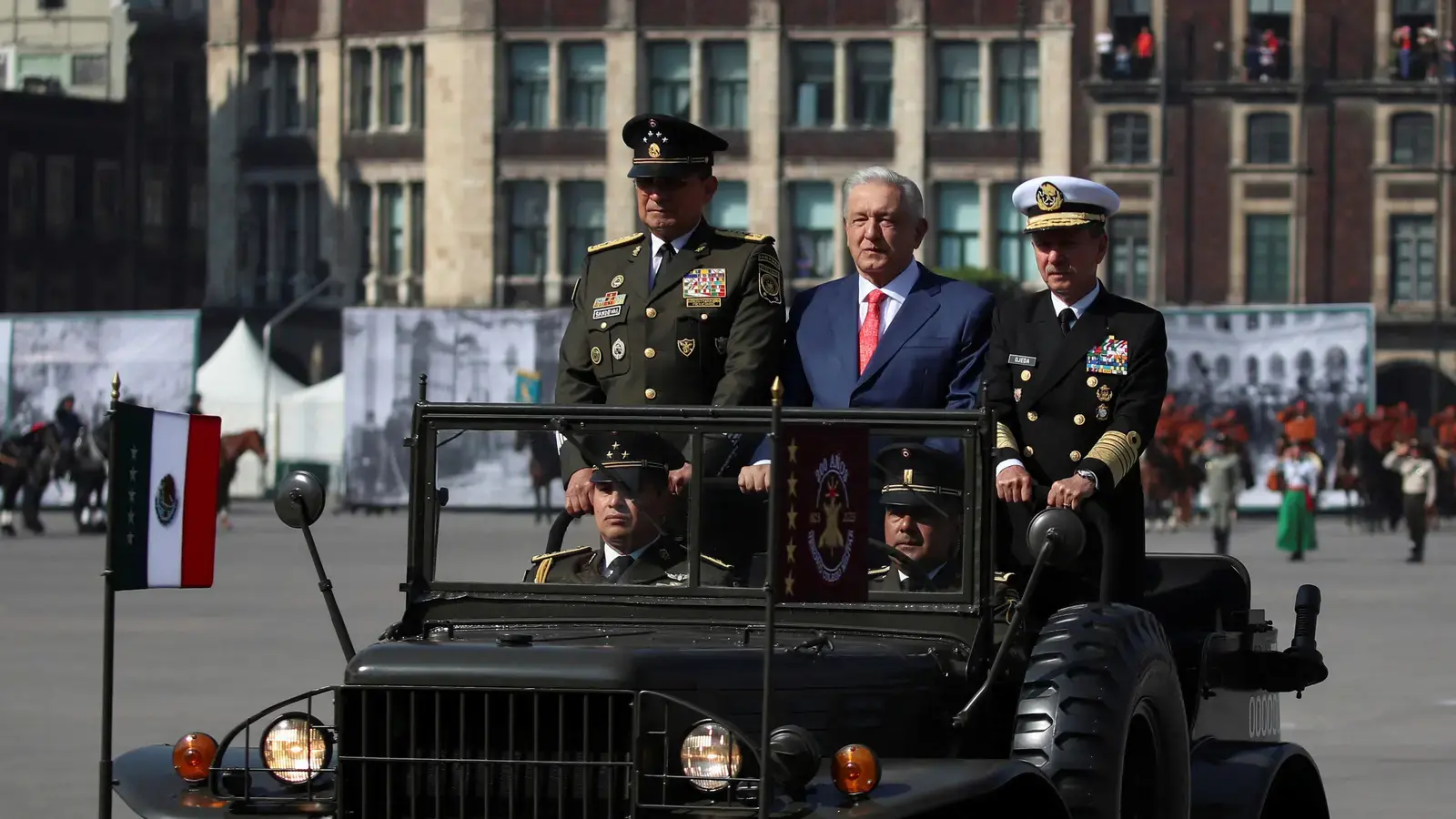Can Mexico’s Next President Control the Military?

The country’s military brass has a larger role governing Mexico than at any time in the past eighty years. It’s creating a dangerous dependency that won’t be easy to break.
Originally published at Journal of Democracy
March 29, 2024 11:22 am (EST)

- Article
- Current political and economic issues succinctly explained.
On June 2, Mexico will hold the biggest elections in its history. Voters will choose a new president, 628 members of congress, and thousands of state and local officials. But there is at least one set of politically consequential decision-makers that will not appear on the ballot: Mexico’s armed forces. Since taking office in 2018, President Andrés Manuel López Obrador (AMLO) has assigned the military sweeping new powers, an ever-larger budget, and new revenue streams. He has also stood by as generals and officers have sought to insulate themselves from judicial investigations. It’s no exaggeration to say the armed forces now have sway over security policy, tax collection, and the day-to-day operation of critical parts of the state.
AMLO’s efforts to remake Mexico’s electoral and judicial institutions, which remain only partially implemented after pushback from the courts, have inspired heated debate at home and abroad. Yet his empowerment of the armed forces, which has sparked less backlash, has resulted in more significant, and likely more lasting, change to Mexico’s institutions. For now, Mexico remains a democracy, despite its flaws. It’s far from a “tutelary” regime, in which generals call the shots and civilians only pretend to rule. While generals have successfully lobbied lawmakers to pass legislation and seem to have influenced AMLO’s decision-making, there are no cut-and-dry cases of military leaders defying civilian orders. Despite pro-AMLO rhetoric from some of the generals, they do not act as political kingmakers or, seemingly, aspire to that status.
More on:
But the military has become as important to governance as any of the country’s civilian bureaucracies—and in some policy areas such as domestic security, perhaps even more so. The armed forces have taken charge of police work nationwide, the operation of Mexico’s ports and customs offices, and the construction of key infrastructure. Mexico’s next president—whether she’s AMLO’s protégé, Claudia Scheinbaum, who leads in the polls, or opposition candidate Xóchitl Gálvez—will find it difficult to govern without the armed forces’ active support.
Mexico’s new normal, a civilian government that is chronically dependent on the military, does not threaten democracy in the familiar ways. There is no risk of a military coup in Mexico. Rather, it creates a new set of dilemmas for democracy regarding the collection and use of intelligence, the independence of the judiciary, and the provision of public goods. Military dependency and its associated dilemmas will likely be AMLO’s most enduring legacy, not the social justice-inspired “fourth transformation” he promised....
To read the rest of the article, visit Journal of Democracy.
More on:
 Online Store
Online Store